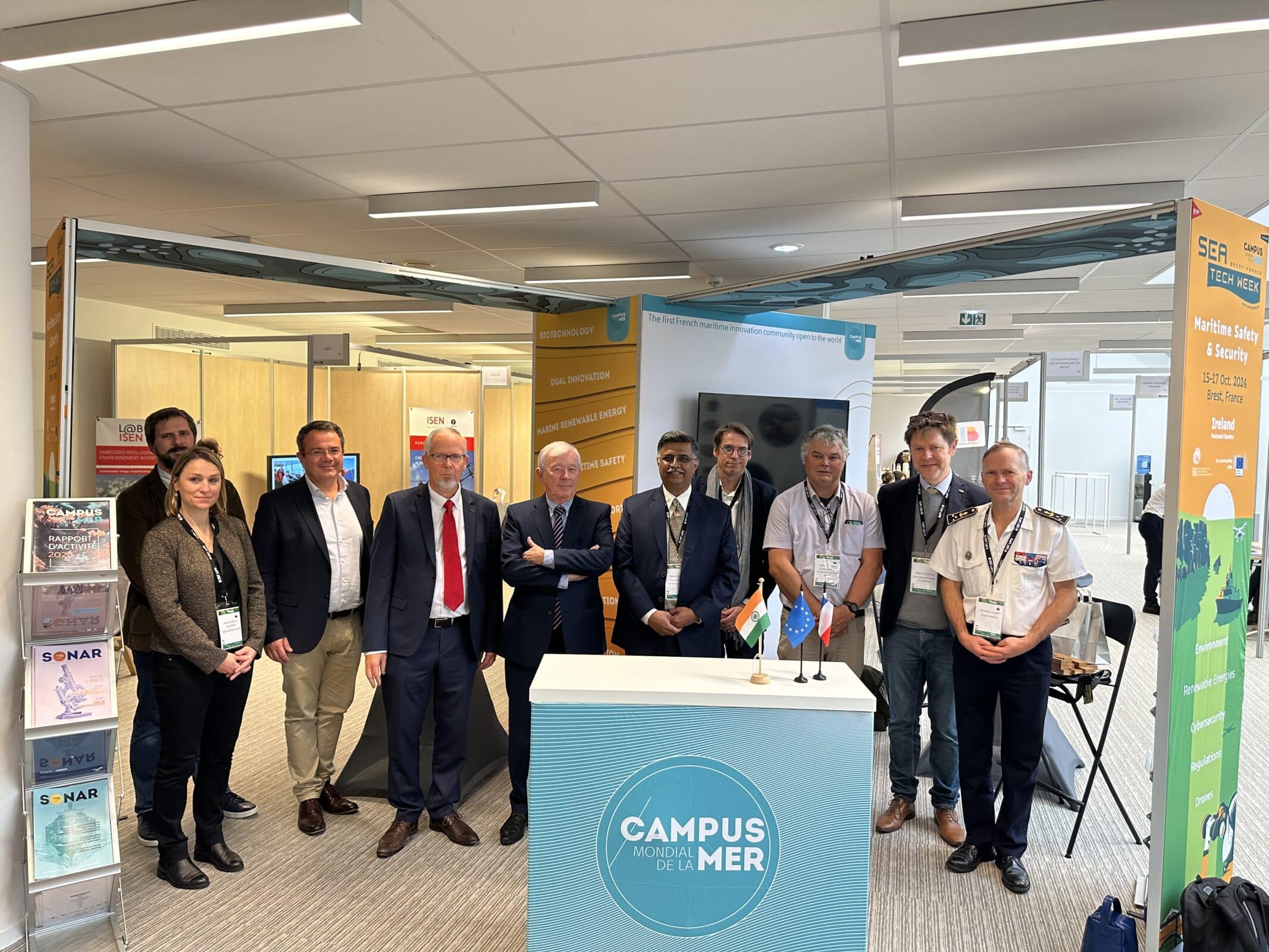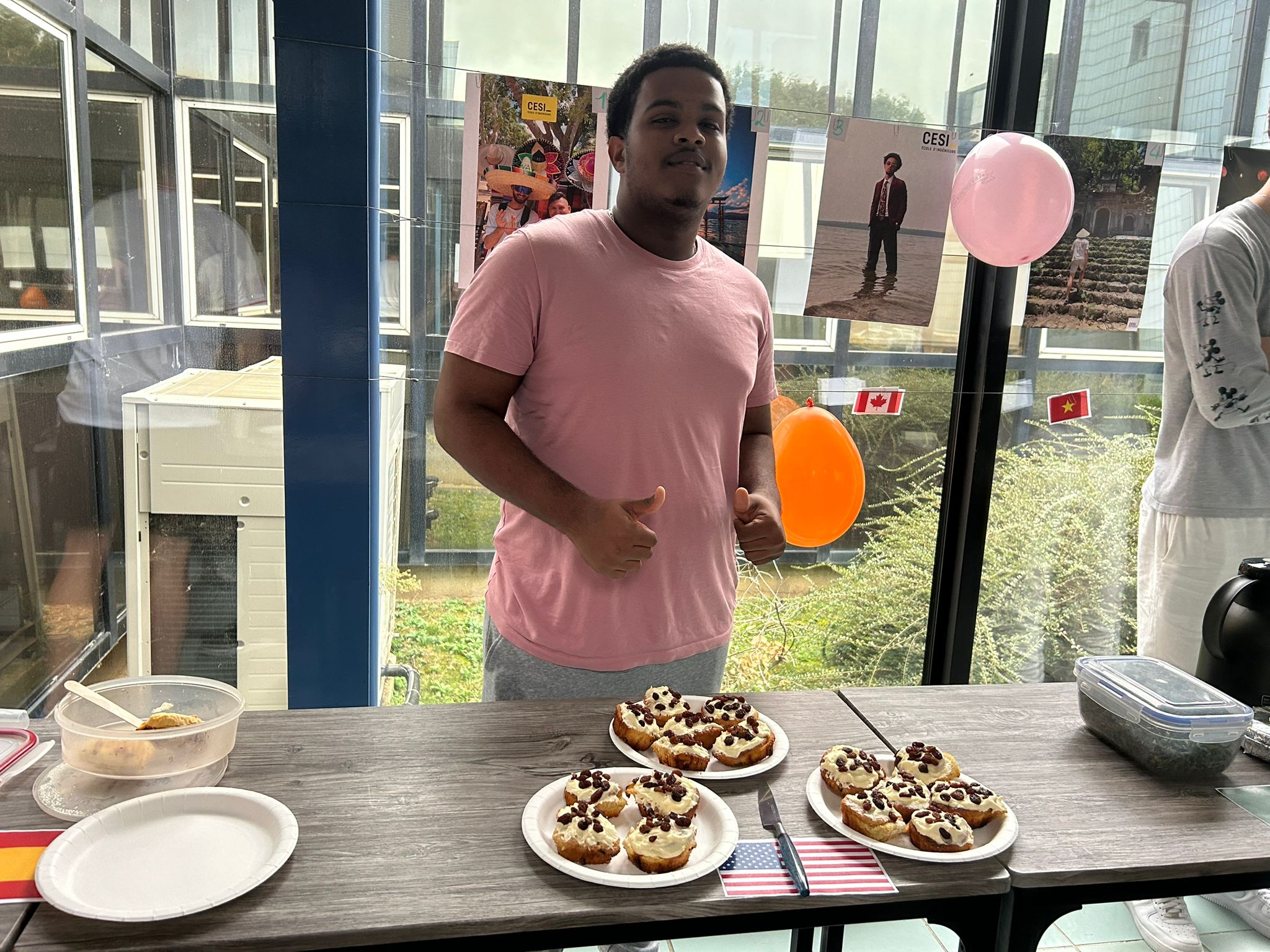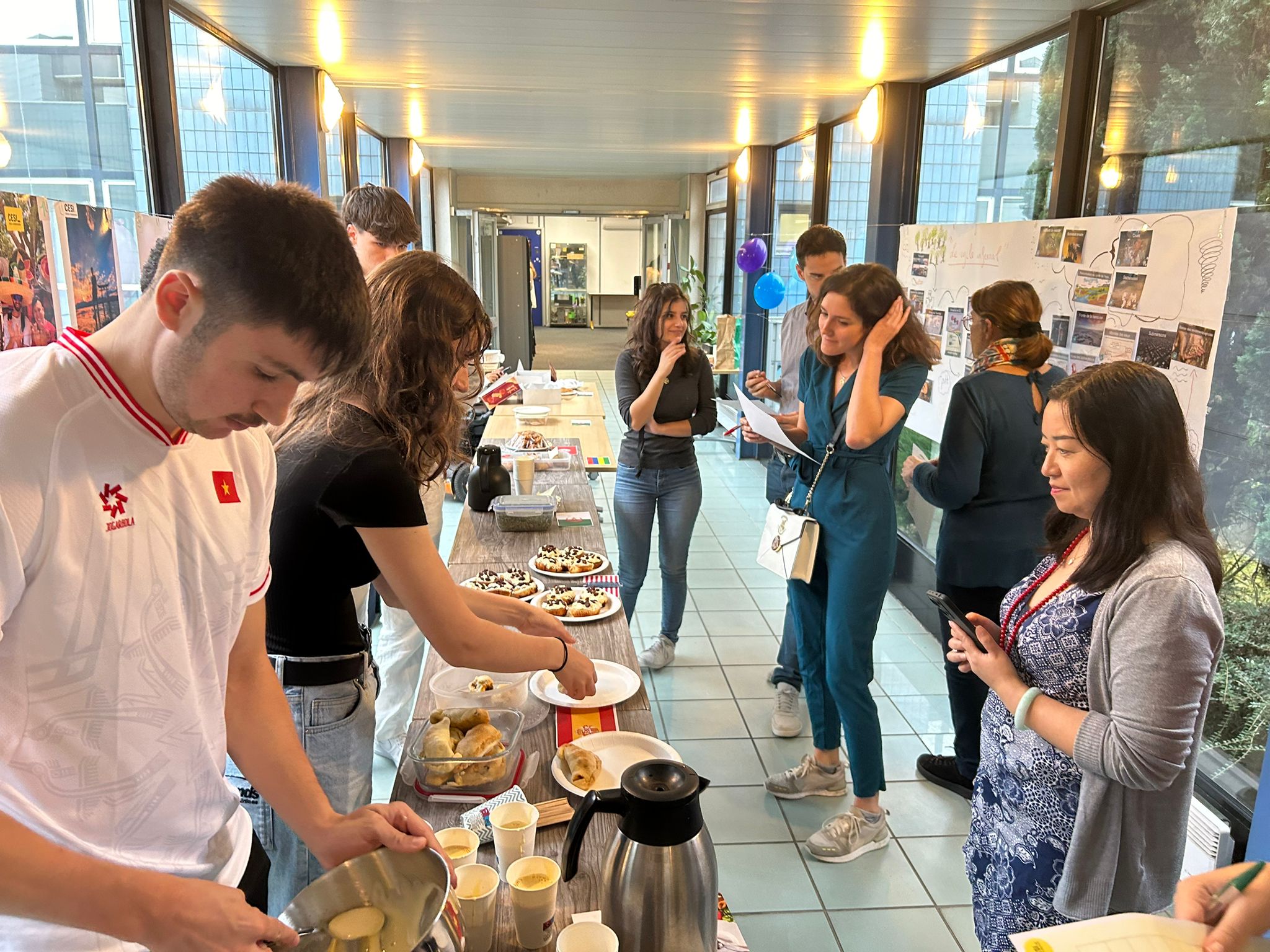In the midst of Erasmus Days 2024
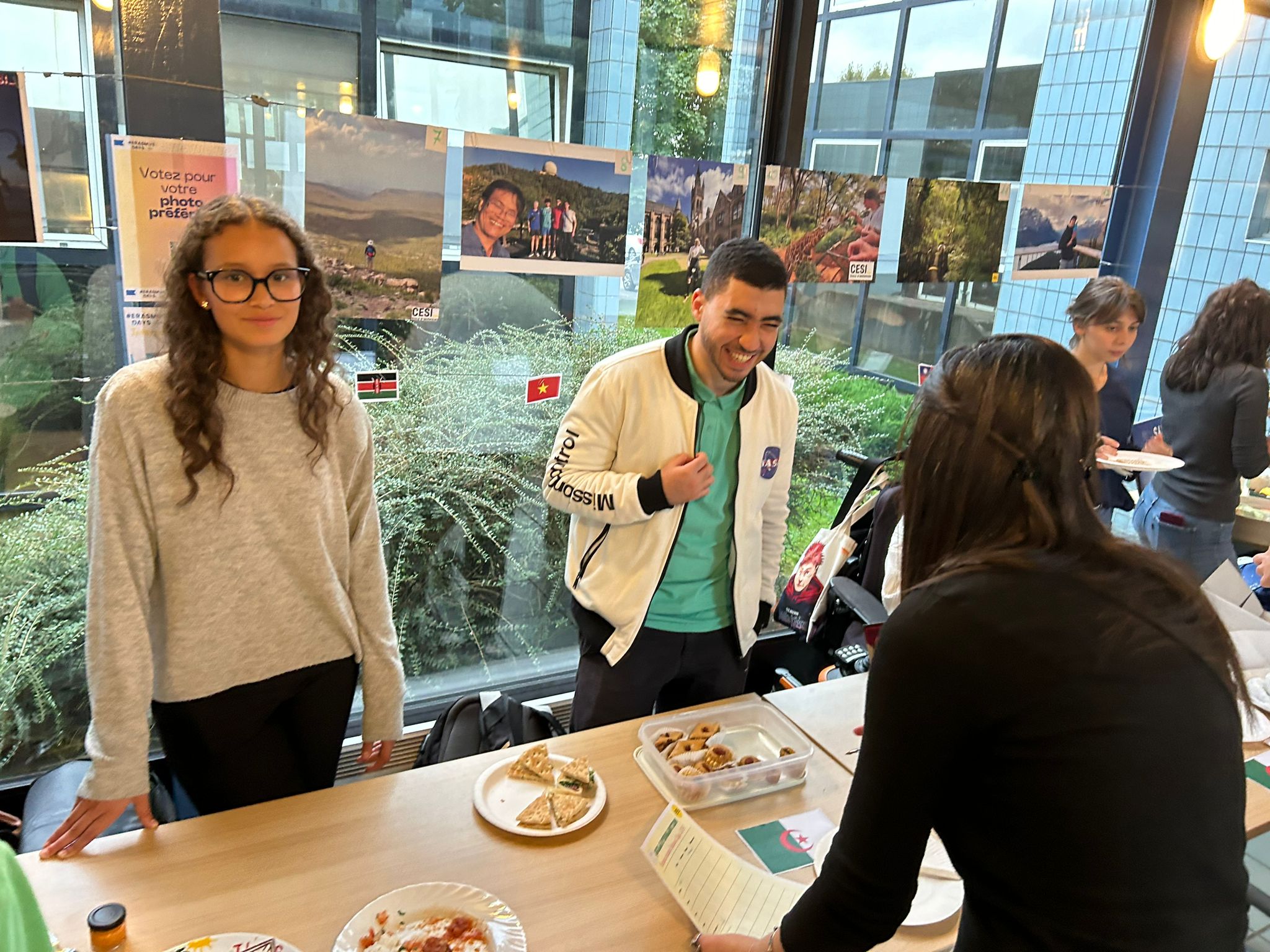
Dans cette page :
- Which country do CESI students most often go to thanks to Erasmus+?
- What initiatives does CESI put in place to encourage students to take advantage of Erasmus+ opportunities?
- How does CESI collaborate with other institutions in the context of these exchanges?
- Can you share some key figures that illustrate the impact of Erasmus+ on students and CESI in general?
- In your opinion, what are the main challenges of Erasmus Days for CESI?
- Can you share some specific examples of success achieved by CESI students thanks to the Erasmus+ program?
- What strategies does CESI plan to adopt to strengthen its partnership with international institutions?
This week’s focus is on Erasmus Days (from 14 to 19 October). We had the opportunity to meet Karine Gourlet, Head of International Mobility at CESI. She introduced us to the many opportunities offered by this program to CESI students, while placing particular emphasis on the issues and strategies that the school implements to support them.
Which country do CESI students most often go to thanks to Erasmus+?
There is a high priority given to the European Union within the school, with a pro-Europe strategy. This is due to the facilitating negotiation framework and the Bologna process, which governs academic credits. Although in recent years the Erasmus+ program has widened its scope to include destinations outside Europe, the continent remains very popular with our students.
We see a lot of interest from our students in Northern Europe, particularly Norway and Denmark, where universities such as Aalborg University in Denmark are adopting an educational model similar to ours. For those who prefer to stay closer, Belgium also remains popular, especially thanks to its engineering schools, which are often smaller in size and more similar to ours.
Spain, for more touristic and cultural reasons, is also a popular destination for students. In addition, historically, we have observed a significant number of students leaving for destinations further east, such as Romania, where we have many partners, as well as Greece, which also attracts a good number of them.
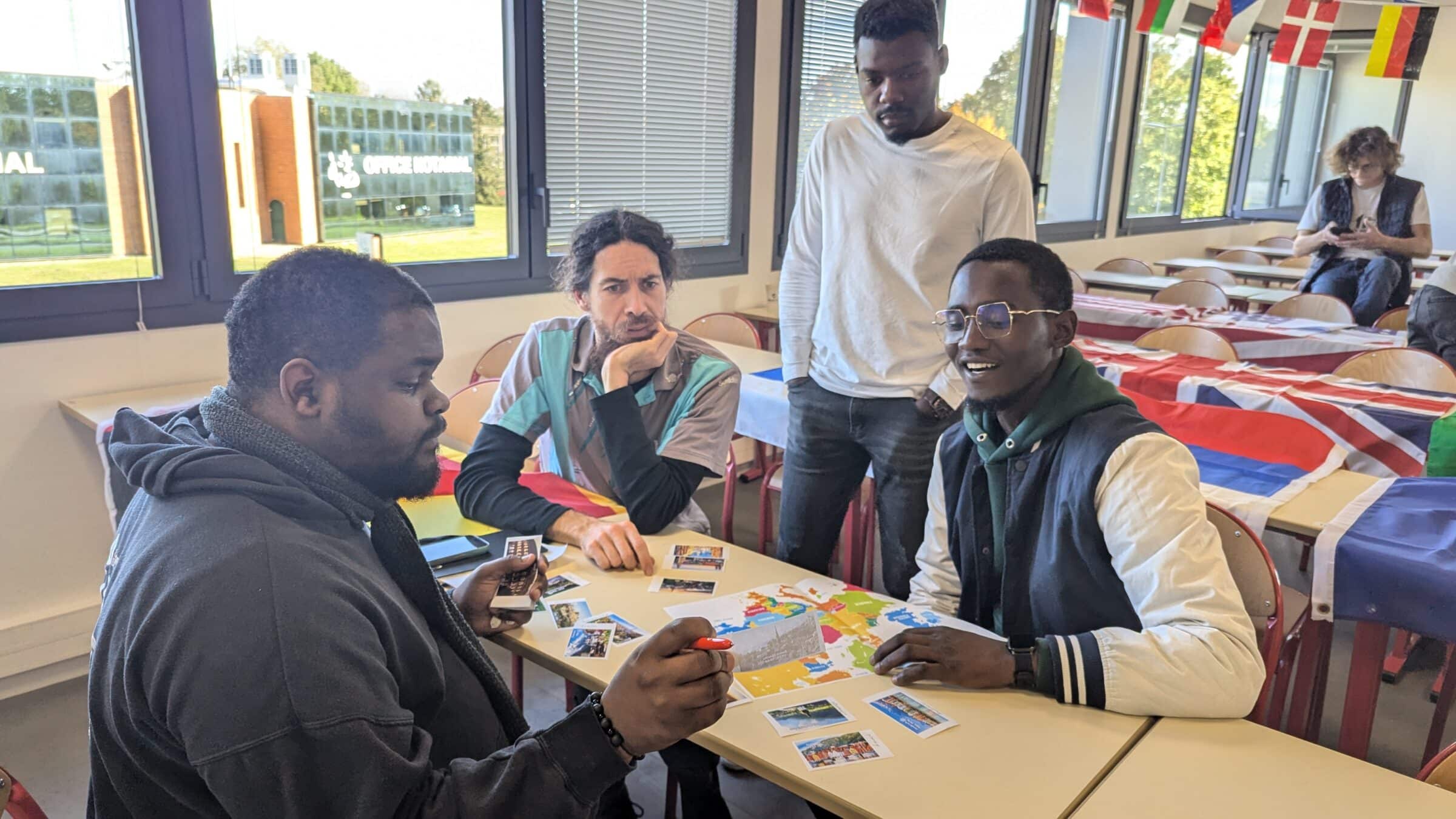
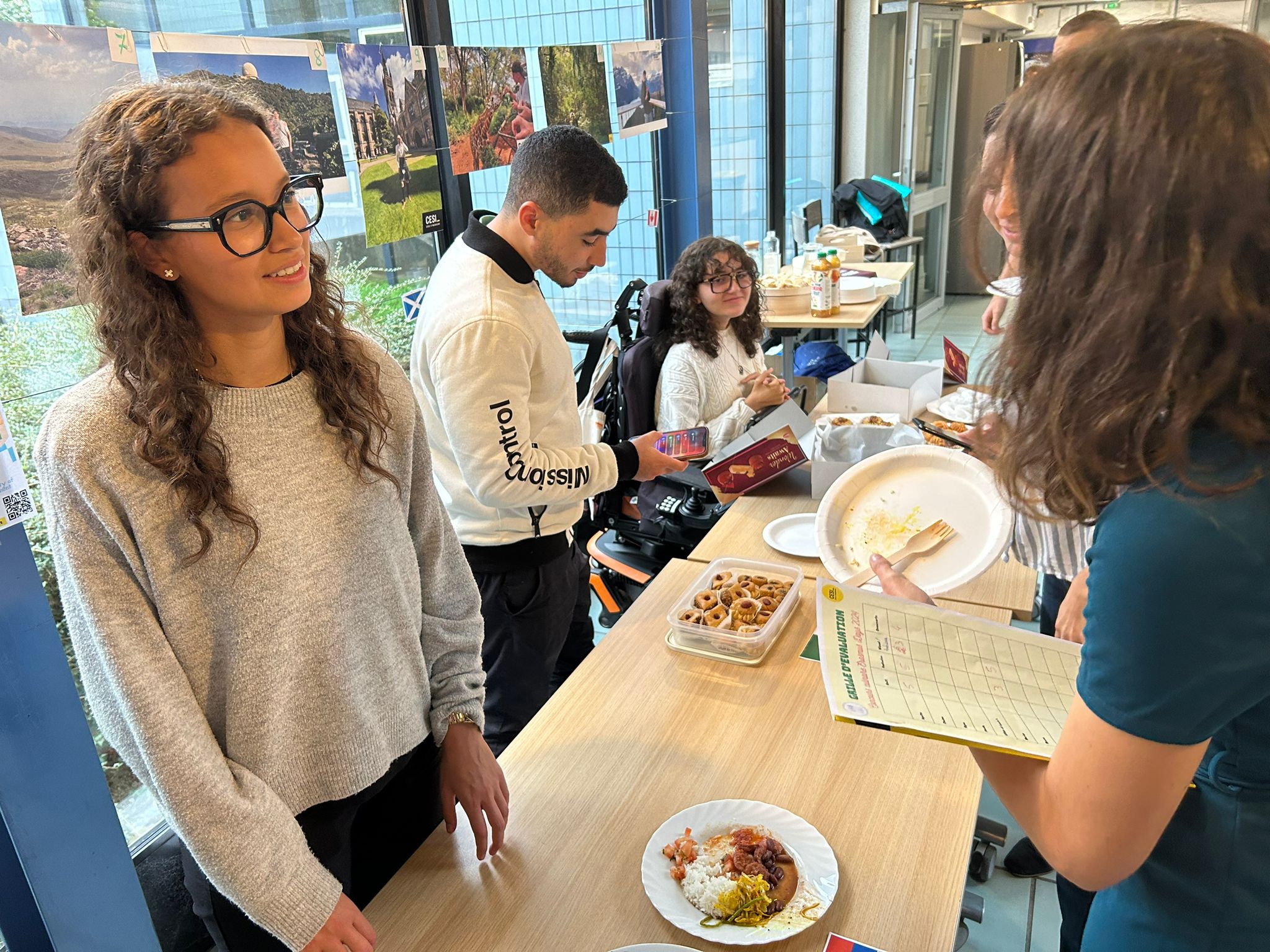
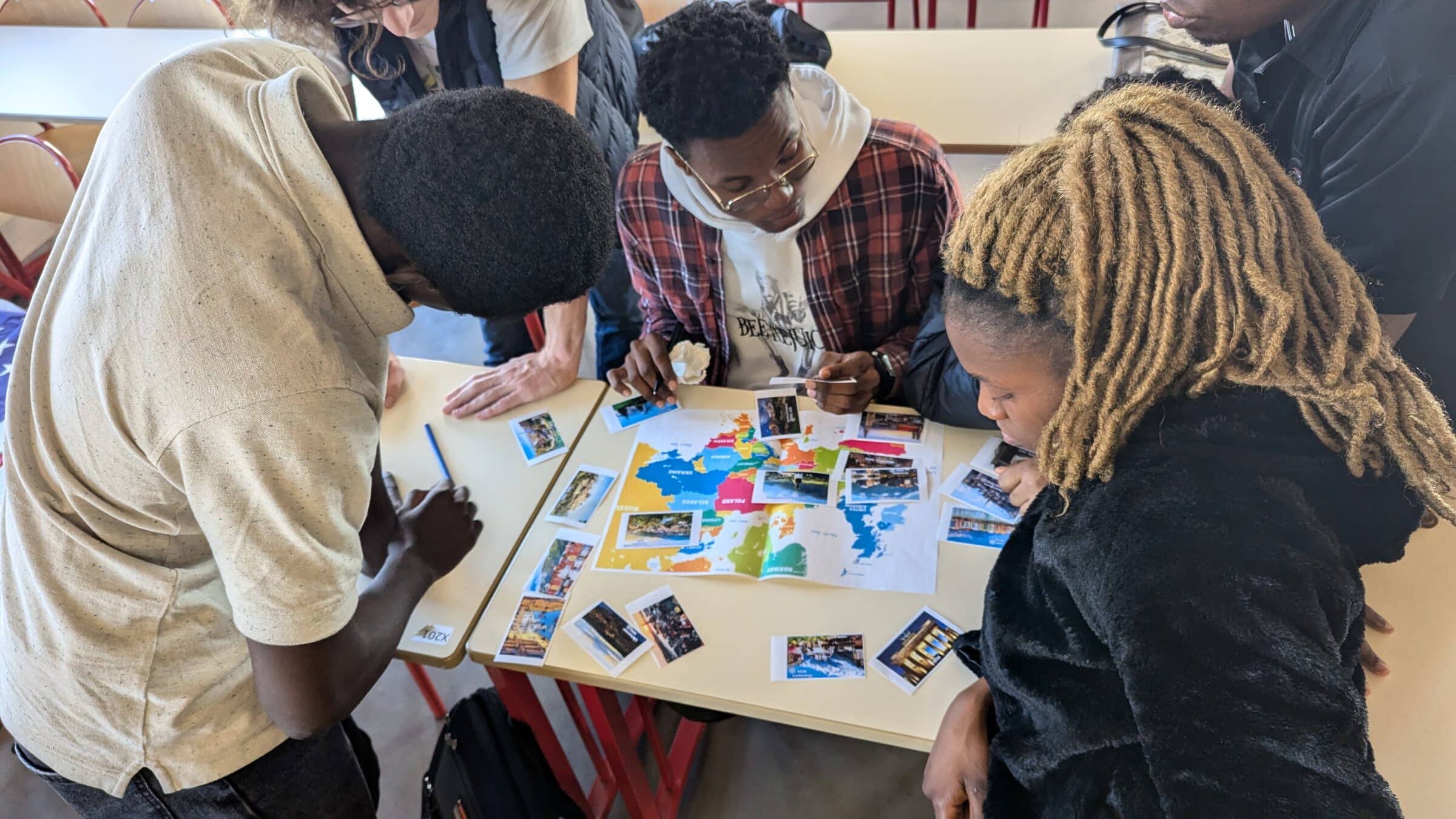
And how long on average do students stay in the exchange country?
In our training program, students have the opportunity to go for only one semester. In fact, the academic calendar does not allow them to extend their stay, except for those who are pursuing double degrees. Currently, we offer three programs of this type in collaboration with European institutions, allowing students to go for a one-year stay in Germany. For most students, however, the duration of their stay is still limited to one semester.
What initiatives does CESI put in place to encourage students to take advantage of Erasmus+ opportunities?
International mobility is mandatory as part of our engineering students’ studies, which means that they know from the outset that they will have to leave. We place a strong emphasis on academic mobility so that they can discover different educational models and promote this Erasmus+ program. It also allows them to discover the European values, which we try to highlight through the school’s Erasmus+ charter.
Every year in October, we launch the international mobility campaign on the occasion of Erasmus Days. In early October, we hosted a presentation at national level with Stefan Seiler, Director of International Development at CESI, where we explained how international mobility works from an educational point of view. This week, for Erasmus Days, we are organizing daily presentations of partners and mobility opportunities by geographical area.
Within the CESI organization, each campus also has international relations officers who ensure a close follow-up with students. Events organized on the Campuses are also highlighted: we bring in external speakers, such as the Maison de l’Europe, as well as student associations such as the Erasmus Student Network, which presents the integration activities of European students. CESI also welcomes incoming Erasmus+ students every year, and we take care to provide them with a quality welcome, in accordance with international standards. In this sense, CESI has obtained the “Bienvenue en France” [Welcome to France] label this year.
We also organize conferences and “travel cafes”, where former students who have left abroad share their experiences and exchange contacts. There are lively debates to stimulate discussion. Here’s an overview of the initiatives we are putting in place to encourage international mobility.

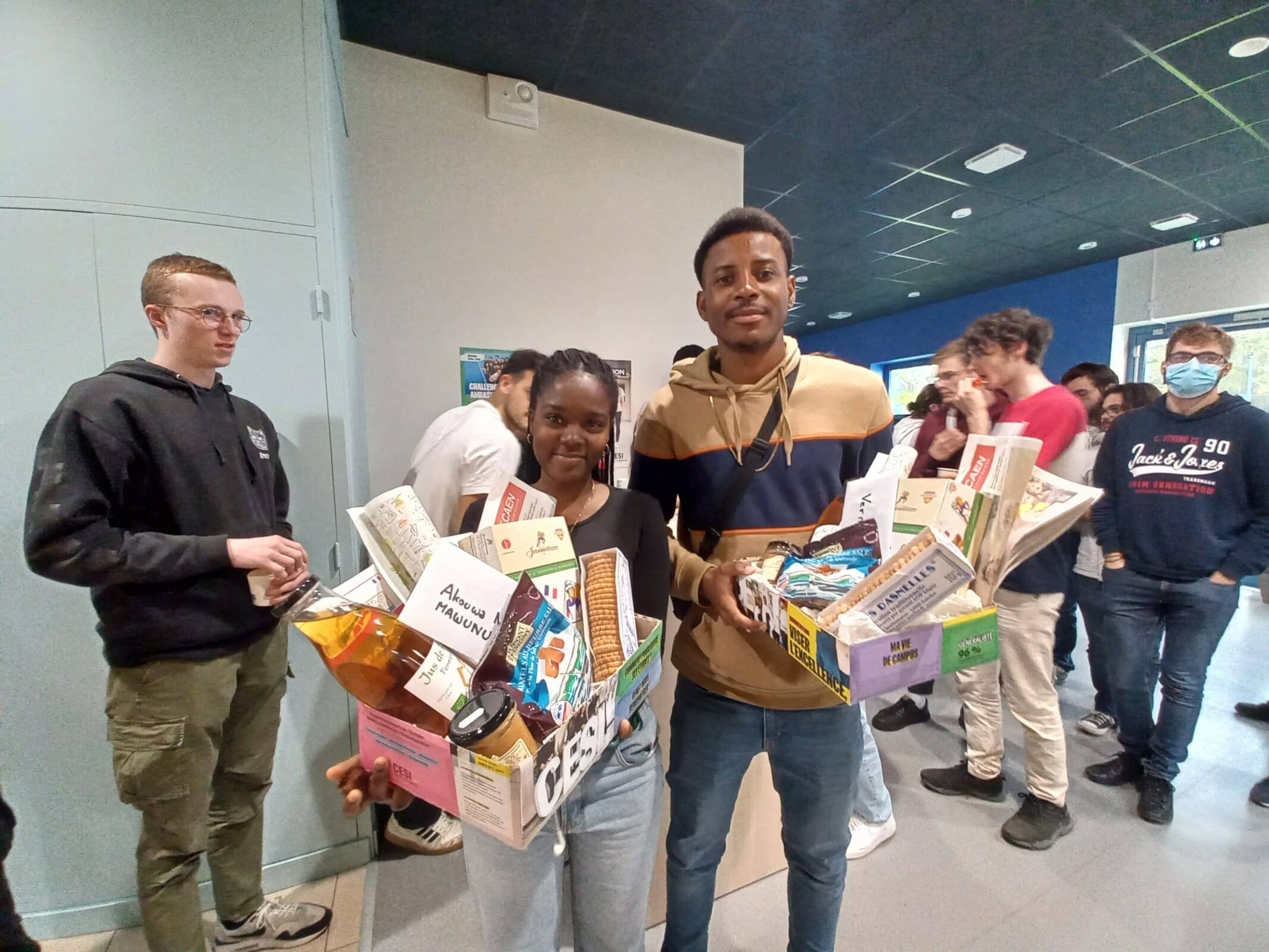
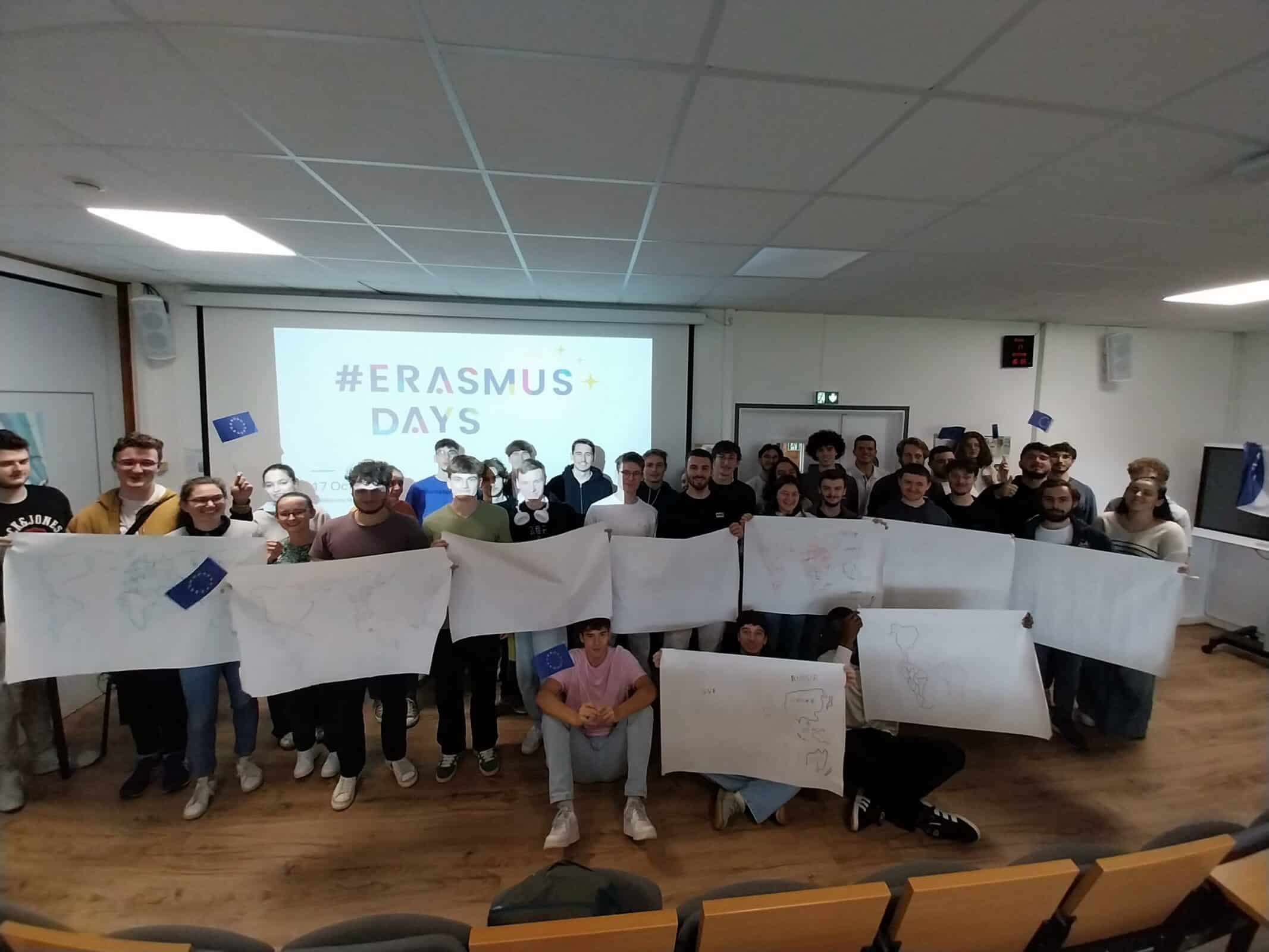
How does CESI collaborate with other institutions in the context of these exchanges?
CESI has held the Erasmus+ charter since 2007. This charter allows us to submit Erasmus projects, and is renewed every seven years. Thanks to this, we have the opportunity to sign partnership agreements with other schools. We have a dedicated international development team, made up of six members spread across geographical areas of the world. This allows us to take part in various institutional fairs, and we are very active within the EAIE, for example. This activity allows us to network with many universities around the world.
In addition, the role of professors should not be overlooked, they also help to establish contacts and arrange staff or teaching placements. Their involvement in research can sometimes generate cooperation projects, which makes it easier to set up mobility schemes for students and trainees
Thus, all departments within CESI participate in the school’s internationalization.
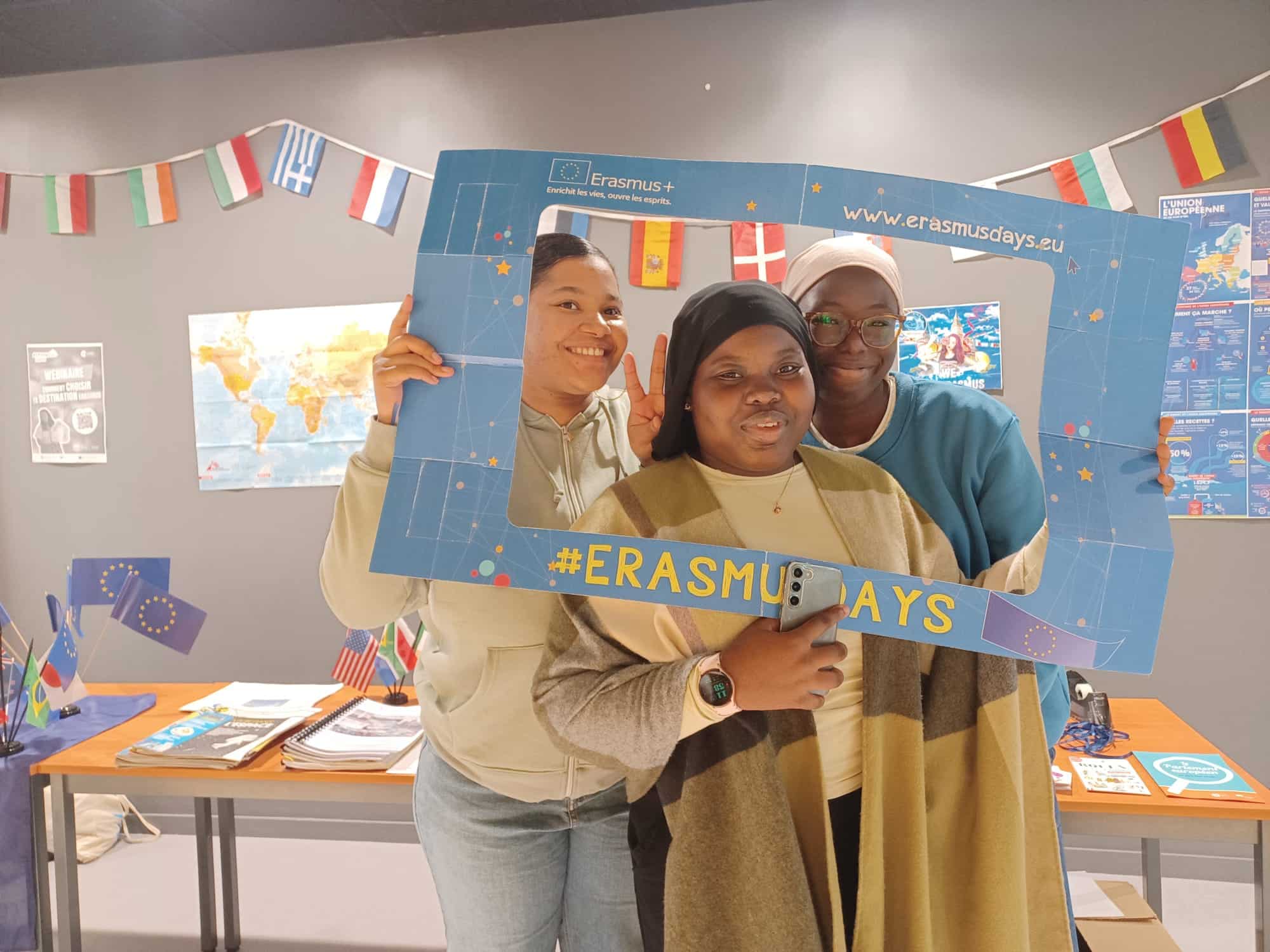
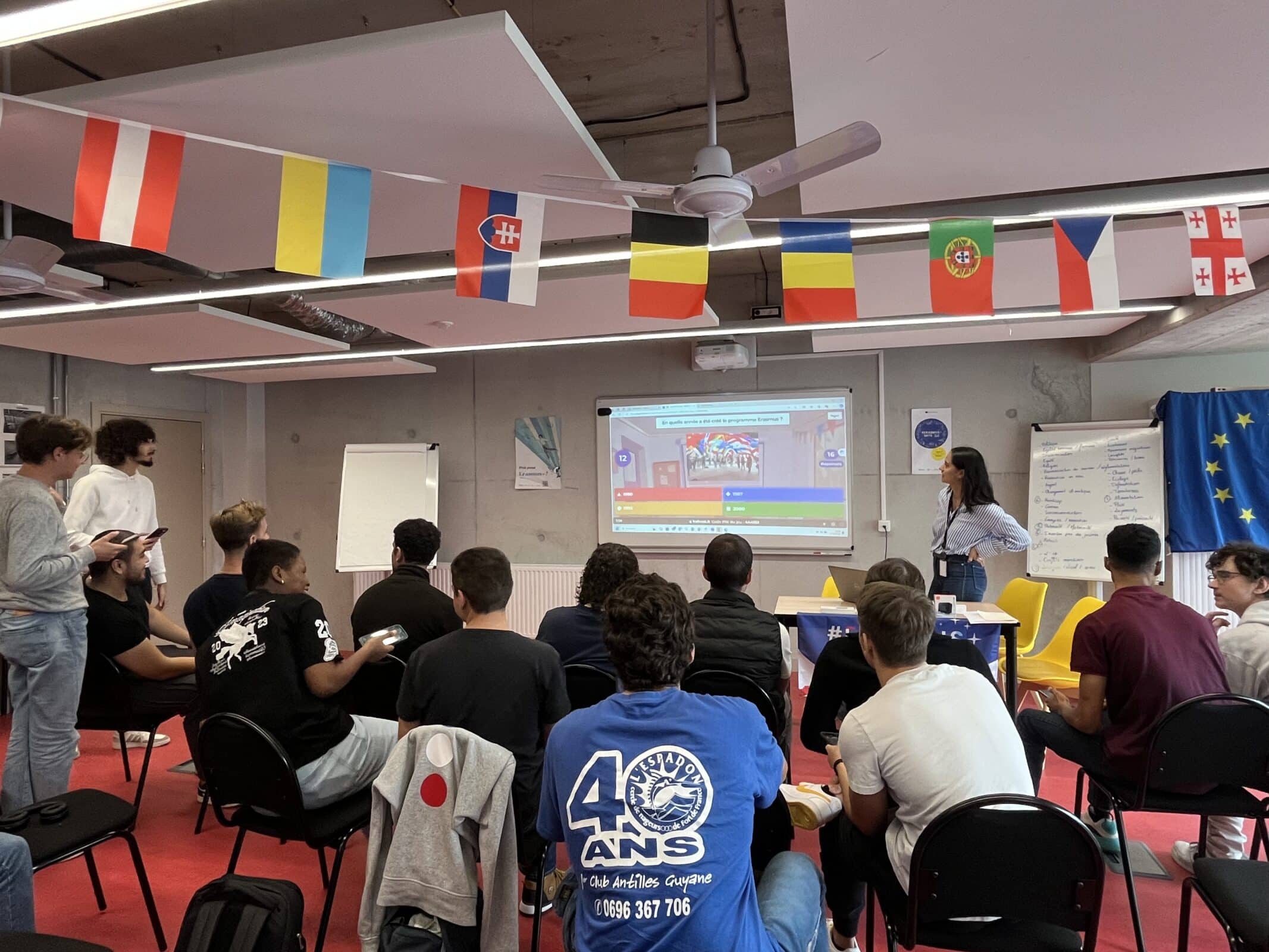
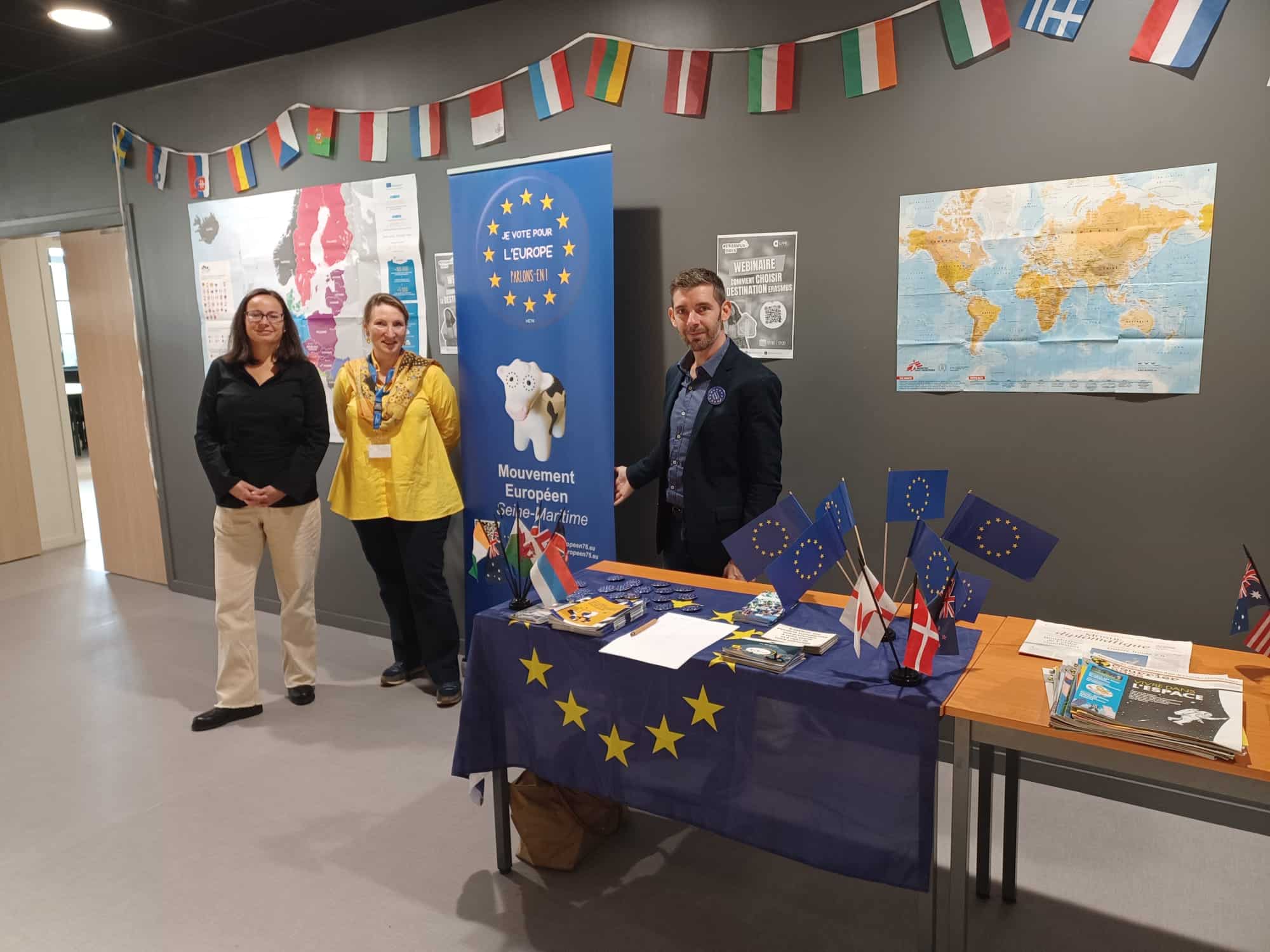
Can you share some key figures that
illustrate the impact of Erasmus+ on students and CESI in general?
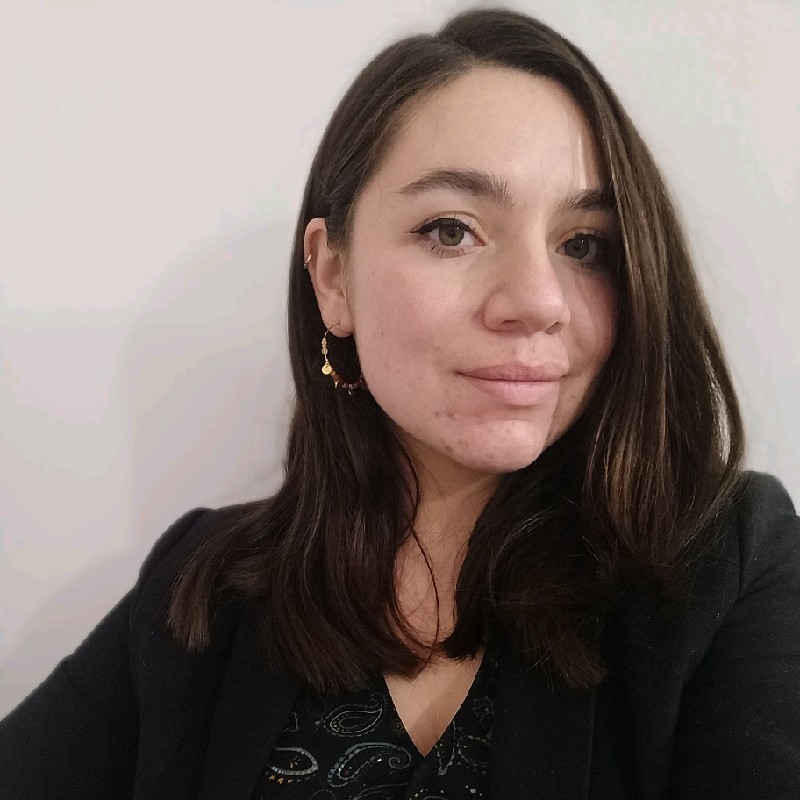
Every year, we apply for Erasmus+ grants to be able to award scholarships to students who go abroad. These grants have increased significantly over the years.This increase is linked to the higher number of students we send on international mobility programs, as well as to the growth in our workforce.
We can also mention here the impressive 100% figure for our engineering students taking part in international mobility programs, which is a strength worth highlighting.
Regarding our Erasmus+ partnerships, we have around fifty Erasmus+ partners among the 130 that we have around the world. This shows the importance we place on the Erasmus+ program and its opportunities.
In your opinion, what are the main challenges of Erasmus Days for CESI?
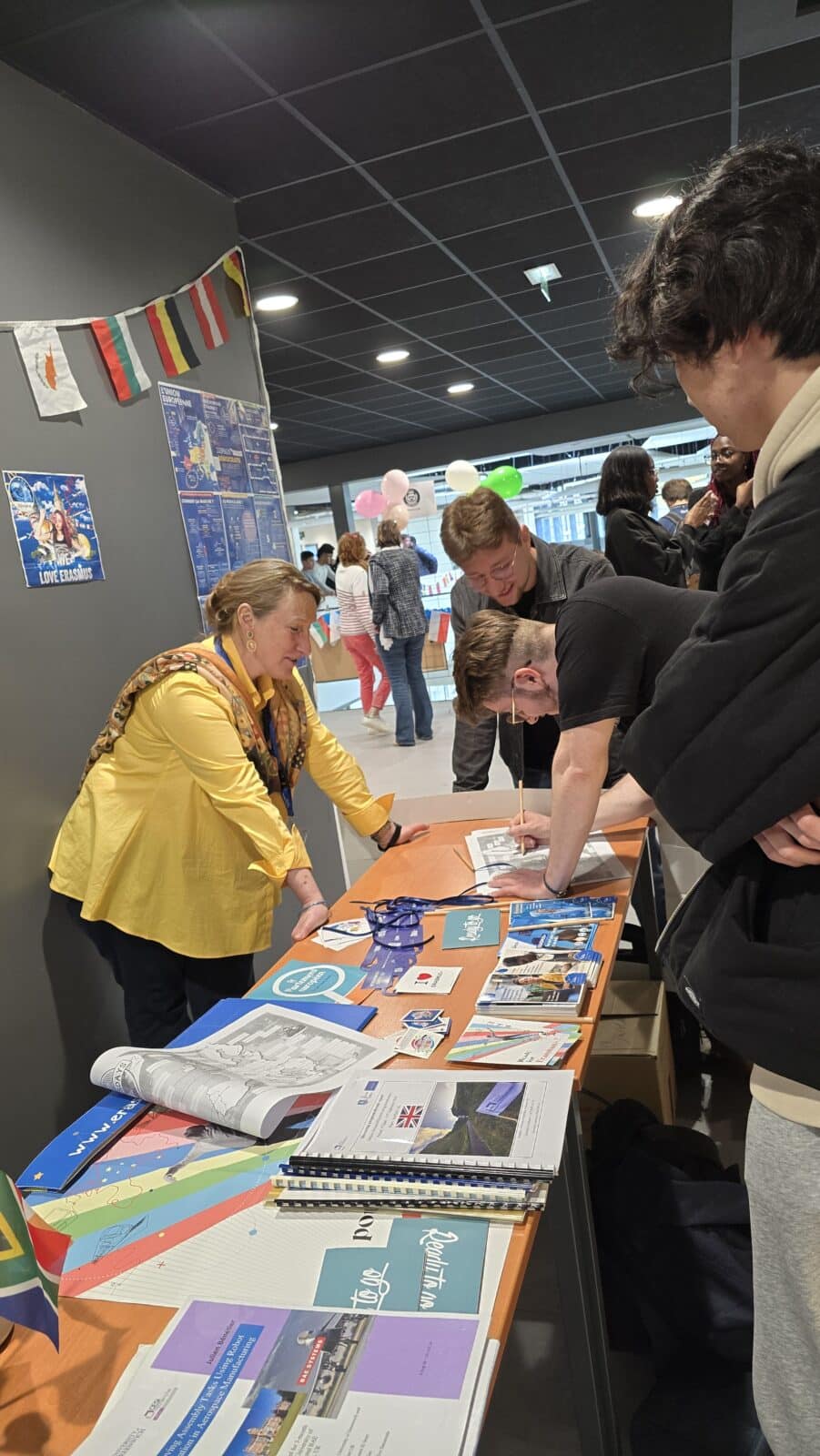
Our aim is to help people discover the Erasmus+ program beyond the usual clichés: “just a holiday” or a “Spanish hostel” type experience. It’s important for us, as a school, to help them understand everything that’s behind this program. Students often don’t realize how much work goes into negotiating a partnership, or the quality standards we must guarantee.
We also highlight civic commitment in engineering studies. For example, we have offered online courses on European construction, the history of the European Union and how European institutions work.
The goal is to help students grasp the importance of these issues, to understand that nothing can be taken for granted and that these opportunities derive from a complex process.
Can you share some specific examples of success achieved by CESI students thanks to the Erasmus+ program?
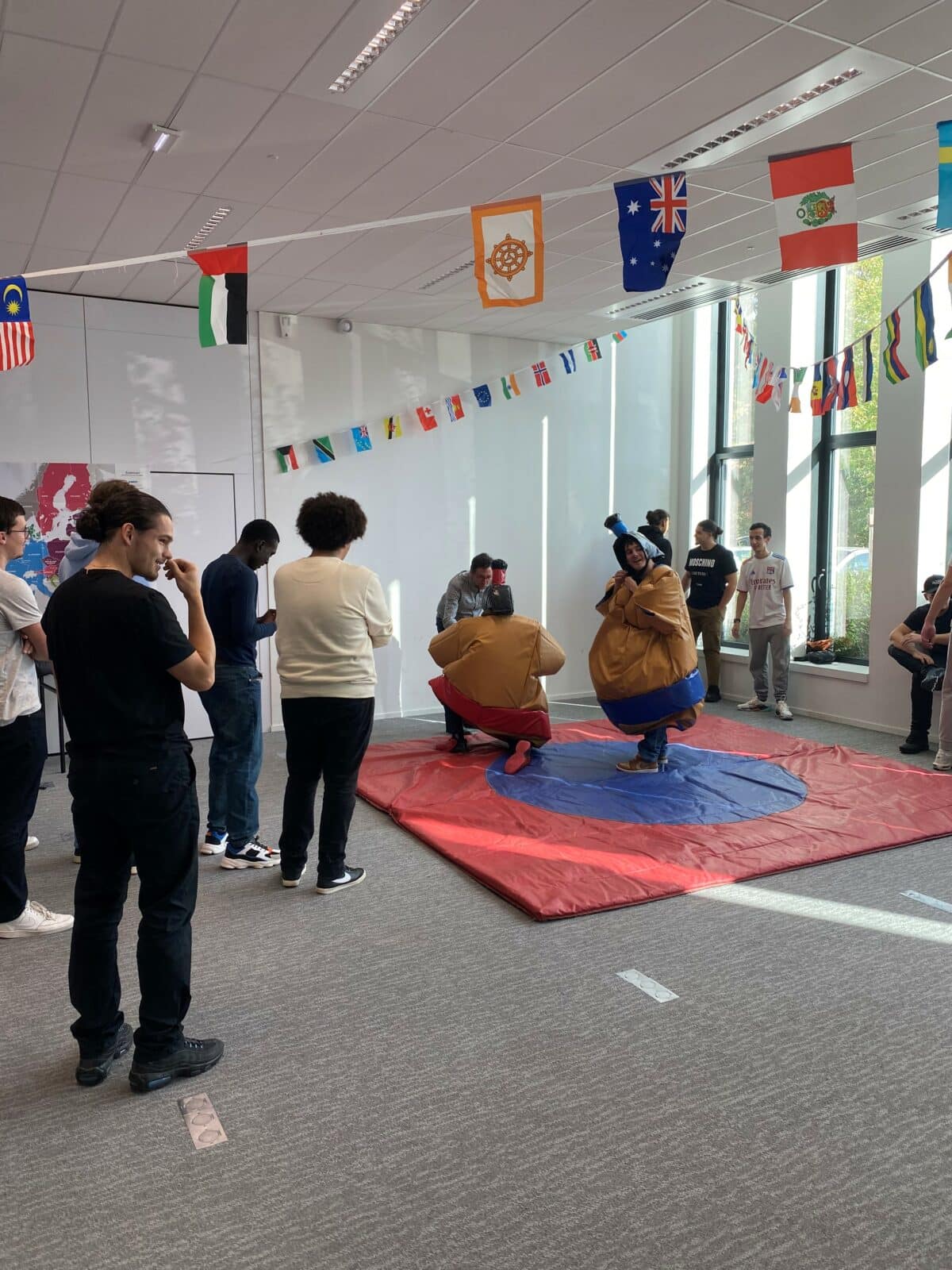
Yes, we have had several success stories. For example, the double degree with our partner THM is a good example. This is our first class leaving abroad this year, and this partnership began in a classic way, with traditional mobility. Over time, we have seen a great deal of convergence, both in terms of teachers and student interest, which has led to the emergence of this double degree.
Generally speaking, all students who take part in an Erasmus+ academic stay come back satisfied. Sometimes, if they have the opportunity, they have extended their stay by one semester in traineeship within the same institution.
Finally, a funny anecdote that I would like to tell is that we have also had “Erasmus+ couples” to celebrate within CESI, and which have allowed us to bring partnerships to life! A few years ago we received a Polish student on an exchange program, and she found love within her class at CESI. So her partner left to do his Erasmus+ the following year in Poland.
What strategies does CESI plan to adopt to strengthen its partnership with international institutions?
We have implemented an Erasmus+ strategy focused on mobilizing all our partners. For us, quantity is not a priority, it’s quality that counts. We want all our partnerships to be active and dynamic, rather than signing agreements that remain dormant and have no tangible effect.
In this context, we make several visits to our partners and include them in cooperation projects.
A major project that we will be embarking on for the first time is an Erasmus+ program called BIP (Blended Intensive Program), scheduled for December 2025. This program will include short mobility periods, lasting around two weeks, during which we will welcome foreign students to our Lille campus. We have already identified our partners, who are thinking about a theme focused on robotics, in collaboration with Belgian, Danish, Norwegian, and Finnish schools.
We will also be involved in MIC (International Credit Mobility) projects. These funds will allow us to finance not only our outgoing students, but also our exchange students, in particular Tunisian, Kenyan and Ghanaian students. We are aware that these students need funding to come to France, because without a scholarship they wouldn’t be able to afford to travel. Like this, we hope to perpetuate our partnerships with these countries.
And, lest we forget, we are increasingly collaborating with our international partners on specific actions to promote the United Nations’ Sustainable Development Goals (SDGs). Our exchanges increasingly include dimensions such as sustainability, gender equality, diversity and interculturality, as well as the fight against discrimination.
For CESI, the ERASMUS program is an excellent lever for internationalization. It’s a fundamental tool for our international cooperation schemes, helping our students to be more open-minded and more employable.
